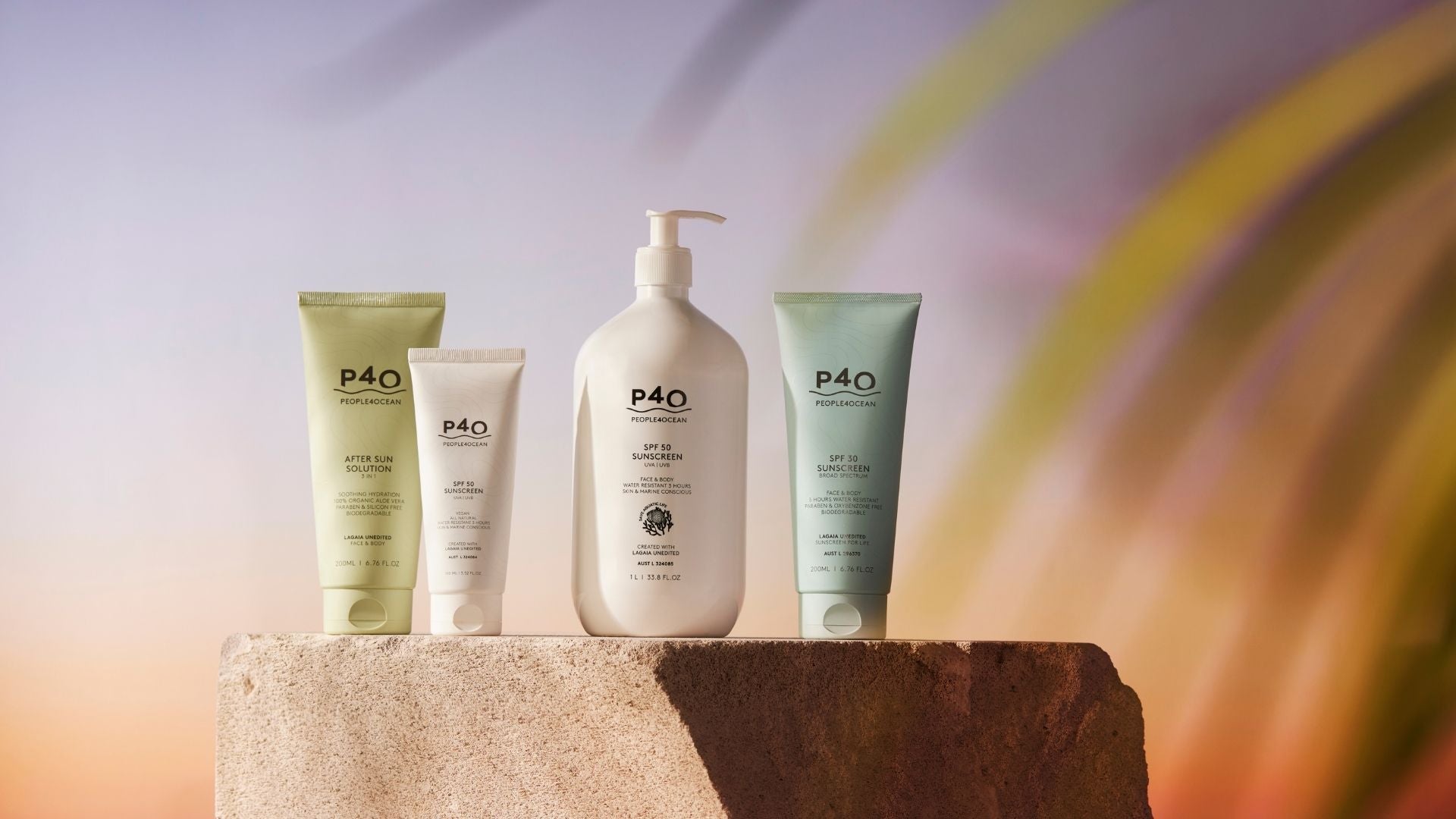
There's so much media hullabaloo and massive campaigns by the Australian government to spread the word, but almost half (45%) of Australians are still confused about different types of sunscreen. Only 55% of Australians recognise that it's safe to use sunscreen every day.
Even those who use sunscreen every day are using it incorrectly. Either not using enough sunscreen, not applying it to all the necessary spots, or forgetting to reapply.
There are so many different brands and types of sunscreen on the market with so many marketing taglines. It is quite understandable that sunscreen usage can be confusing.
That's why we have created this comprehensive guide to sunscreen types and more to explain all...
Mineral Sunscreen
Mineral sunscreens are also called physical sunscreens, and that's because they act as a physical blocker against the sun and UV rays. They usually have zinc oxide or titanium dioxide or both, and they sit on top of the skin, blocking UV rays from touching or harming your skin. It's similar to using an umbrella or a piece of clothing as a physical UV shield.
You can always tell when someone is using a mineral sunscreen because they are a bit more visible than other sunscreens. If you spend all day long in the sun or surf and need something extremely powerful, then a physical or mineral sunscreen such as a zinc stick is a great one to use, because it is more water-resistant than other sunscreen types. It's also useful because you will know when a mineral sunscreen rubs off and needs to be reapplied.
Natural Sunscreen
There's a lot of the hype about natural sunscreens, as Australians become more cognisant of what they put into and on their bodies. This is especially true if you are going to put sunscreen on your children or babies.
Unfortunately, the term 'natural' sunscreen is a misnomer, as there is no sunscreen out there that's completely natural. Natural would imply that it's made entirely of ingredients found in nature or made by Mother Nature.
But all sunscreens, even if they have natural ingredients like coconut oil or aloe vera, will have chemical components. This helps shield your skin from UV rays.
You might have natural sunscreens that are 98% natural, but none that are 100% natural and still effective against harmful UV rays.
Vegan Sunscreen
This is another popular type of sunscreen, as more Australians (500,000 of them) become vegan and are looking for sunscreens without any animal products or cruelty included.
Even if you are not vegan, it's always a great idea to purchase products that haven't been tested on animals or those that don't use animal products, to reduce the suffering of beings on this planet. It can only result in good karma for you.
If you are interested in vegan sunscreens, you will need to ensure that they have a label on there that says something like 'No Animal Testing'. Also, it shouldn't include any animal products, like gelatin, or animal fats.

Organic Sunscreen
The final type of sunscreen that's pretty popular in the market is organic sunscreens. Essentially, they would use only 'organic' or 'carbon-based chemicals' in their ingredient list.
It could have ingredients like oxybenzone, avobenzone, and octinoxate, which are all carbon-based, but not ingredients like zinc and titanium, because they are inorganic or not carbon-based.
Don't confuse the notion of organic foods that are free from pesticides and insecticides, with organic sunscreens. That's a completely different ballgame.
The problem is that when laypeople go to the supermarket or pharmacy to purchase 'organic' sunscreen, they are thinking about sunscreen without any toxic ingredients in them. That is, something more 'natural'.
This is because they believe natural ingredients will protect the body from harmful UV rays, without affecting hormones or causing allergies. That's why organic sunscreen is great for the skin on your face which is more sensitive than the rest of your body.
AND natural ingredients in your sunscreen means that you won't be dumping chemicals into the ocean, which could harm the coral reefs and other ocean life, every time you jump into the surf. That should make you feel better about playing in the big blue with your family on the holidays.
Which Types of Sunscreen Are Best for You?
There is much debate on this by the various groups that go for one option or another. Some people are all for vegan sunscreen and think physical sunscreens are harmful not only to the body but also to the environment. Others are all about natural sunscreens and think everything else is useless.
There isn't any conclusive evidence yet on which sunscreen is best for you and the environment. The main thing to remember is that you NEED to wear sunscreen when you go out, especially in the harsh Australian sun. Skin cancer rates are growing - especially in young Australians who tend to sunbathe without sunscreen to get that so-called "glow up".
Whatever sunscreen you end up using, make sure that you put it on at least 30 minutes before going out into the sun. Reapply every 2-4 hours depending on how much you sweat and how much time you spend in the water. Also, don't forget to put sunscreen on the top of your ears, the back of your hands and feet, and your scalp (if you have thin hair or aren't wearing a hat).
Don't let yourself get confused by all the different brands, labels, and sunscreens out there. Check out the People4Ocean catalogue. We have a wide variety of organic, natural, mineral, and vegan sunscreens for you to choose from.
All our sunscreens are reef-safe, broad-spectrum, and dry to the touch. We have free shipping for all orders over $45. Buy one of our sunscreens and protect yourself and your family today!


Comments (0)
Back to Blog